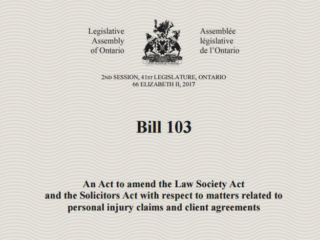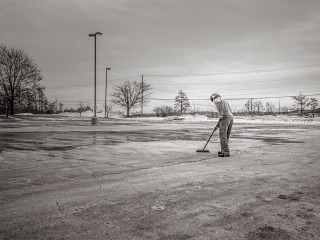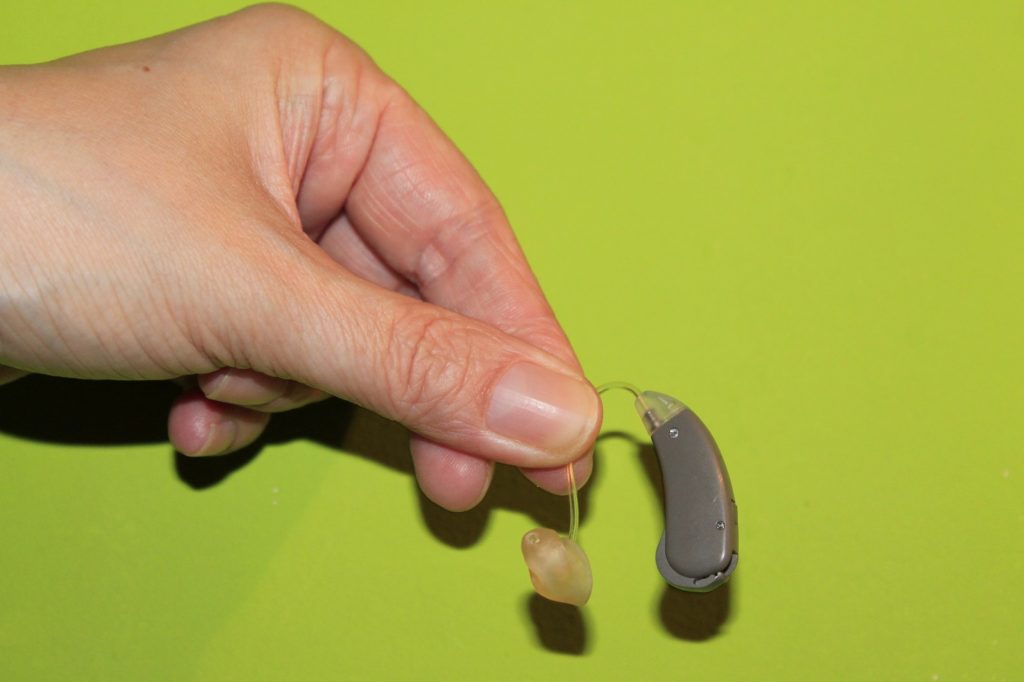Hearing loss results in two marked impairments and entitlement to non-earner benefits despite return to work.
Date Heard: October 24, 2017 | Full Decision [PDF]
This was a decision following a three week FSCO arbitration which found that hearing loss qualifies as marked impairment and a return to work does not preclude an applicant from receiving non-earner benefits.
The Applicant was injured in a motor vehicle accident on October 20, 2007. His primary injury was a labyrinthine concussion in his inner ear which led to complete hearing loss in his left ear and partial hearing loss in his right ear. The Applicant claimed the hearing loss was the primary factor in his mental health issues.
TD paid medical rehabilitation benefits up to the non-catastrophic limits of $100,000.00. It funded the Applicant’s hearing aids (and replacement aids), psychological treatment and speech language pathology and various tv ears accessories.
The two main issues at arbitration were whether the Applicant was catastrophically impaired and whether he was entitled to non-earner benefits (despite his return to work and not having a supportive OCF-3 until September 2015). Other issues included entitlement to housekeeping benefits, interest and expenses.
Despite funding treatment for nearly 10 years, TD took the position that the hearing loss was not caused by the accident due to a delay in referral to an ENT. The arbitrator questioned why TD would wait until the arbitration and until the medical rehabilitation benefits were exhausted to raise causation. It called no evidence to challenge causation. Its own ENT as part of the IE CAT team agreed the hearing loss was caused by the accident. Ultimately, Arbitrator Kowalski found the hearing loss was caused by the accident, there being no pre-accident risk factors or other sources that could have caused the loss.
With respect to the issue of non-earner benefits, Arbitrator Kowalski found the Applicant did suffer a complete inability to carry on a normal life within 104 weeks of the accident. This finding was made despite the Applicant having received income replacement benefits initially until July 2009 and having returned to work a few months after the accident. The first OCF-3 supporting NEB entitlement was submitted in September 2015. The Applicant’s income also increased post-accident.
In applying the Court of Appeal’s factors outlined in Heath v. Economical, the arbitrator found the applicant’s ability to return to work and operate his car dealership business was owed entirely to his reliance on hearing aids and post-accident treatment. She went on to note:
“While we can do a line-by-line analysis of his chores or family outings or number of cars sold, I find this would not result in a fair representation of Mr. Sadat’s post-accident life. To be complete, any analysis has to take into account a person’s quality of life and the diminution of the overall quality of in considering the NEB test. On the particular facts of this case, a comparison of Mr. Sadat pre-and post-accident life must include not only his ability to function but must take into account day-to-day experiences that may not be obvious but that are nonetheless fundamental, such as hearing one’s children and engaging with them as before, hearing an alarm clock, hearing a tea kettle, or hearing a friend. I find that these considerations fall squarely into the principles enunciated in Heath and that Mr. Sadat cannot fully engage in substantially of his activities in the way he did before the accident, and is significantly impaired without them. For all of these reasons, I find that Mr. Sadat has proven entitlement to NEBs.”
With respect to the issue of catastrophic impairment, the arbitrator agreed that the consequences of hearing loss resulted in psychological impairments and the Applicant’s ability to function in every aspect of life. Preferring the evidence of the Applicant’s treating psychologist and his CAT assessors over the IE CAT team who did not have the complete treating records to aid in their assessments, she found him to suffer a Class 4 marked impairment in the spheres of social functioning and deterioration/decompensation in work or work-like settings (also referred to as Adaptation).
Arbitrator Kowalski found the AMA Guides state that assistive devices should be removed for testing and evaluation. Thus, without his hearing aids, the Applicant’s challenges and difficulties increased significantly both in his daily functioning and at work such that they significantly impeded useful functioning in the areas of social functioning and adaptation.
Finally, the Applicant was awarded his full expenses claimed at a ratio of 4:1 of preparation to hearing time. The hearing itself took place over 11 days with 17 witnesses. Taking into account his degree or success, the complexity and nature of the issues and length of the hearing, Arbitrator Kowalski awarded over $78,000.00 in fees, HST and disbursements.
Read the full decision [PDF]














